Food Adulteration and Fraudulent Activities in the Hospitality Industry of UK
VerifiedAdded on 2023/06/08
|10
|582
|331
AI Summary
This presentation discusses food adulteration and fraudulent activities in the hospitality industry of UK, including legislation to control food fraud, types of fraudulent activities, and a report on food fraud.
Contribute Materials
Your contribution can guide someone’s learning journey. Share your
documents today.

Presentation
Secure Best Marks with AI Grader
Need help grading? Try our AI Grader for instant feedback on your assignments.
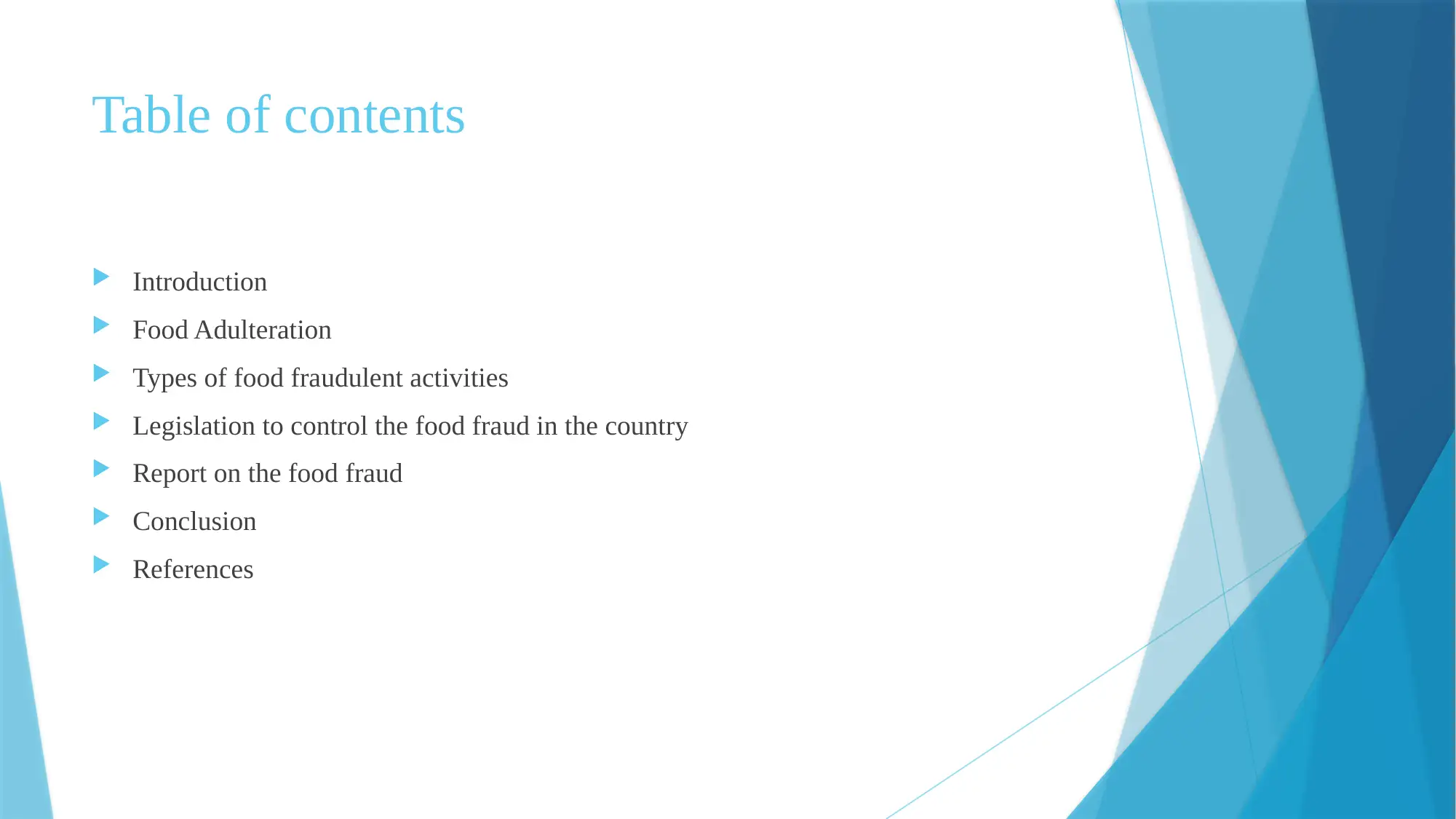
Table of contents
Introduction
Food Adulteration
Types of food fraudulent activities
Legislation to control the food fraud in the country
Report on the food fraud
Conclusion
References
Introduction
Food Adulteration
Types of food fraudulent activities
Legislation to control the food fraud in the country
Report on the food fraud
Conclusion
References
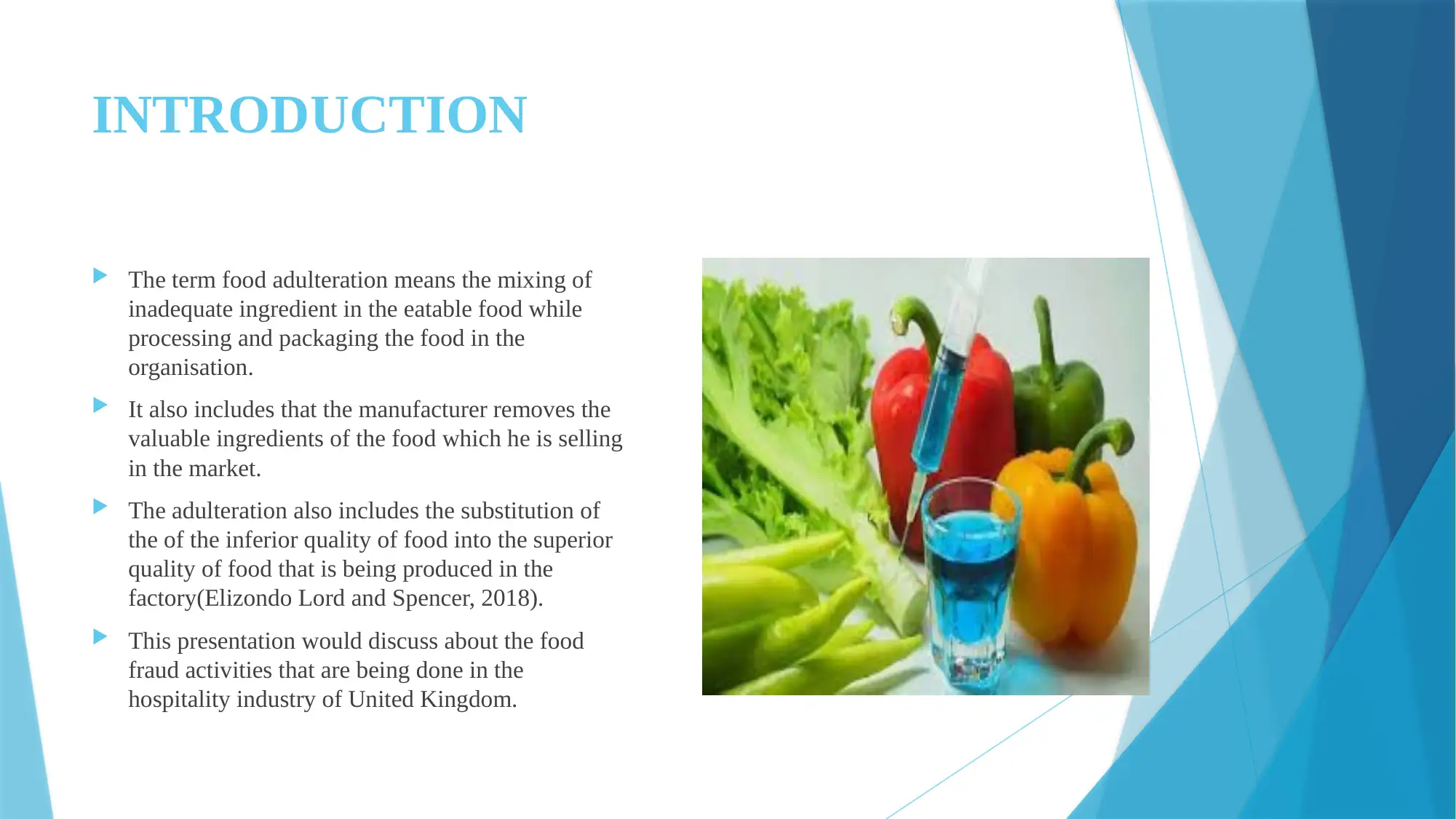
INTRODUCTION
The term food adulteration means the mixing of
inadequate ingredient in the eatable food while
processing and packaging the food in the
organisation.
It also includes that the manufacturer removes the
valuable ingredients of the food which he is selling
in the market.
The adulteration also includes the substitution of
the of the inferior quality of food into the superior
quality of food that is being produced in the
factory(Elizondo Lord and Spencer, 2018).
This presentation would discuss about the food
fraud activities that are being done in the
hospitality industry of United Kingdom.
The term food adulteration means the mixing of
inadequate ingredient in the eatable food while
processing and packaging the food in the
organisation.
It also includes that the manufacturer removes the
valuable ingredients of the food which he is selling
in the market.
The adulteration also includes the substitution of
the of the inferior quality of food into the superior
quality of food that is being produced in the
factory(Elizondo Lord and Spencer, 2018).
This presentation would discuss about the food
fraud activities that are being done in the
hospitality industry of United Kingdom.
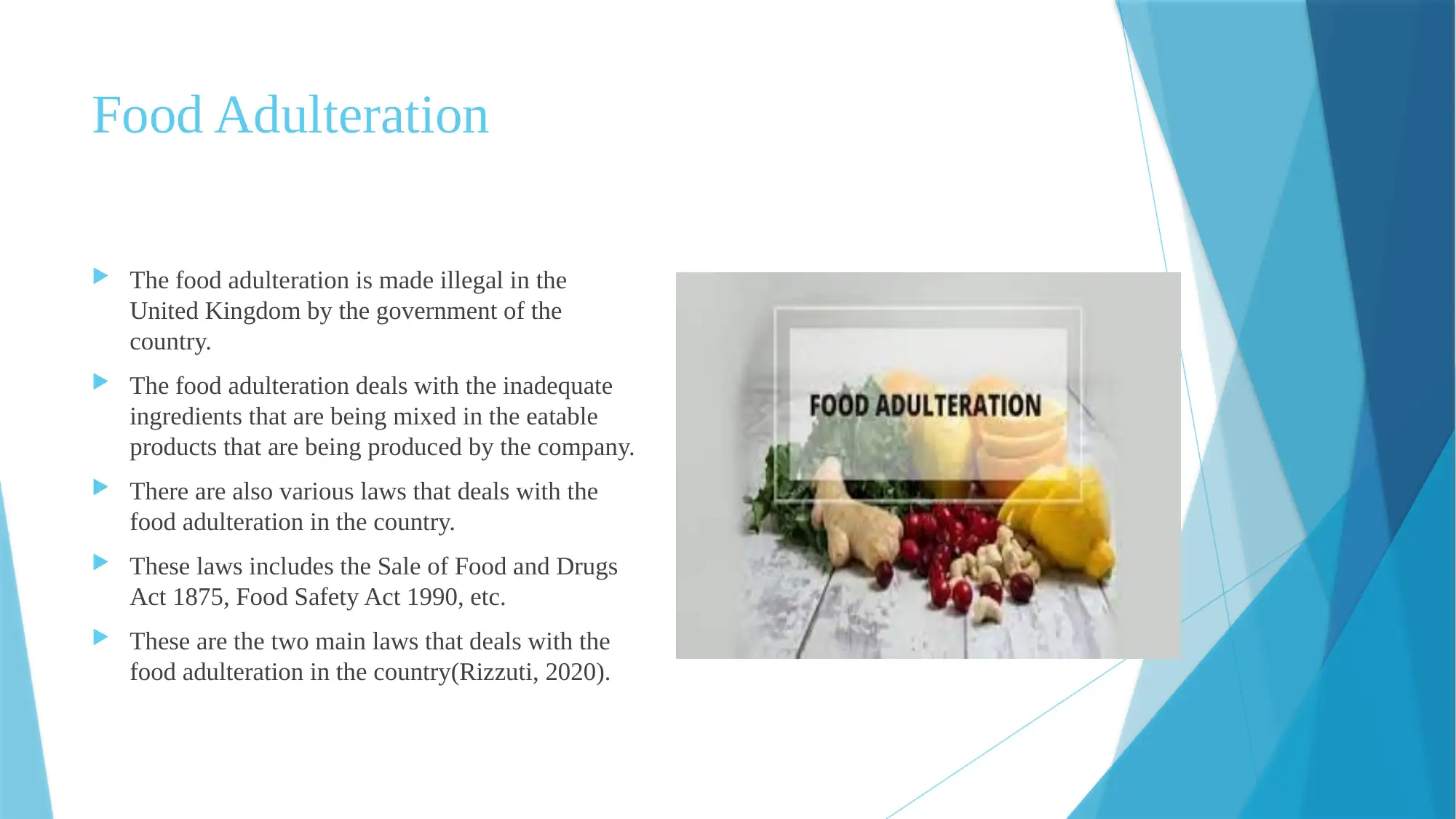
Food Adulteration
The food adulteration is made illegal in the
United Kingdom by the government of the
country.
The food adulteration deals with the inadequate
ingredients that are being mixed in the eatable
products that are being produced by the company.
There are also various laws that deals with the
food adulteration in the country.
These laws includes the Sale of Food and Drugs
Act 1875, Food Safety Act 1990, etc.
These are the two main laws that deals with the
food adulteration in the country(Rizzuti, 2020).
The food adulteration is made illegal in the
United Kingdom by the government of the
country.
The food adulteration deals with the inadequate
ingredients that are being mixed in the eatable
products that are being produced by the company.
There are also various laws that deals with the
food adulteration in the country.
These laws includes the Sale of Food and Drugs
Act 1875, Food Safety Act 1990, etc.
These are the two main laws that deals with the
food adulteration in the country(Rizzuti, 2020).
Secure Best Marks with AI Grader
Need help grading? Try our AI Grader for instant feedback on your assignments.
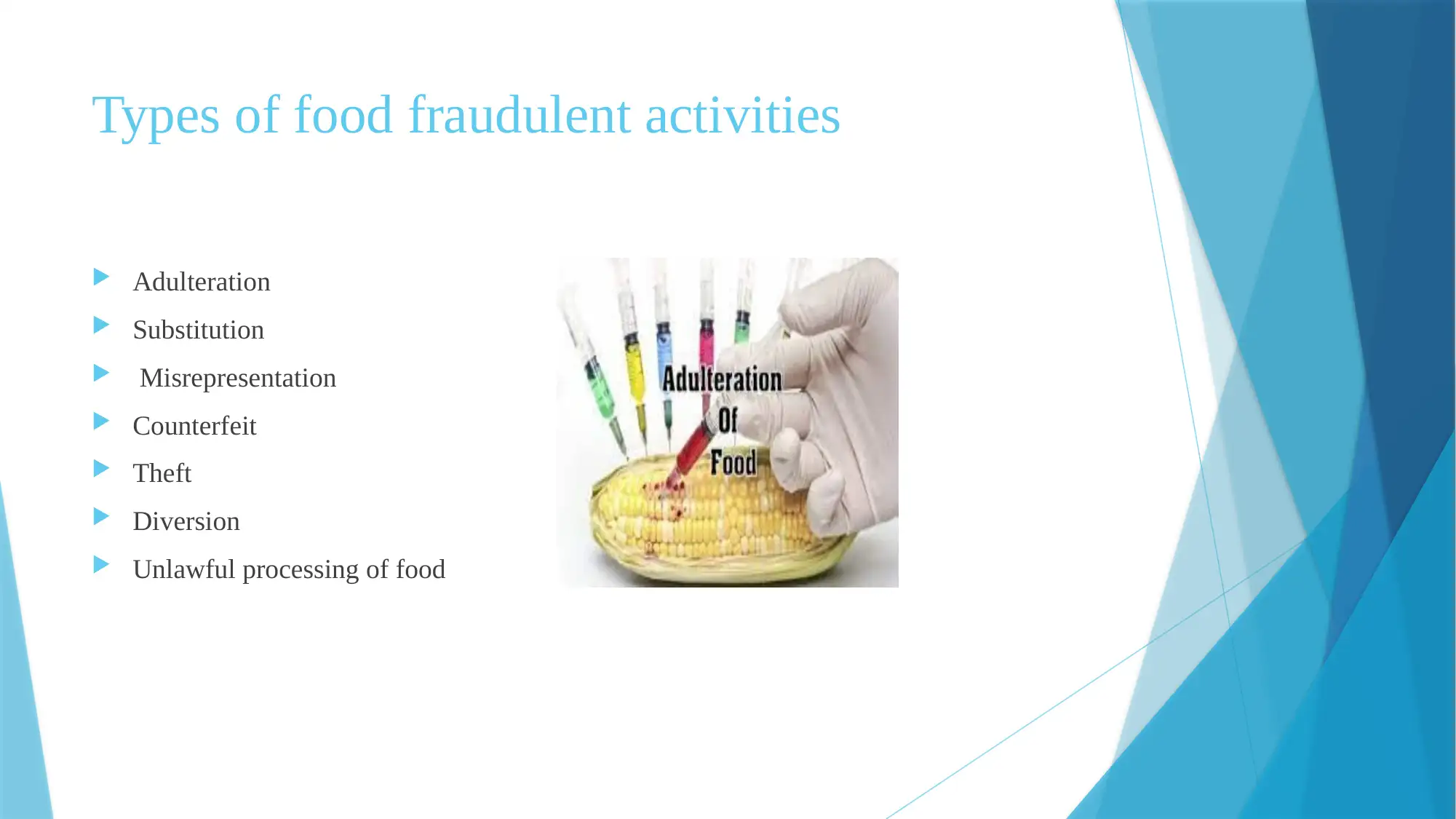
Types of food fraudulent activities
Adulteration
Substitution
Misrepresentation
Counterfeit
Theft
Diversion
Unlawful processing of food
Adulteration
Substitution
Misrepresentation
Counterfeit
Theft
Diversion
Unlawful processing of food
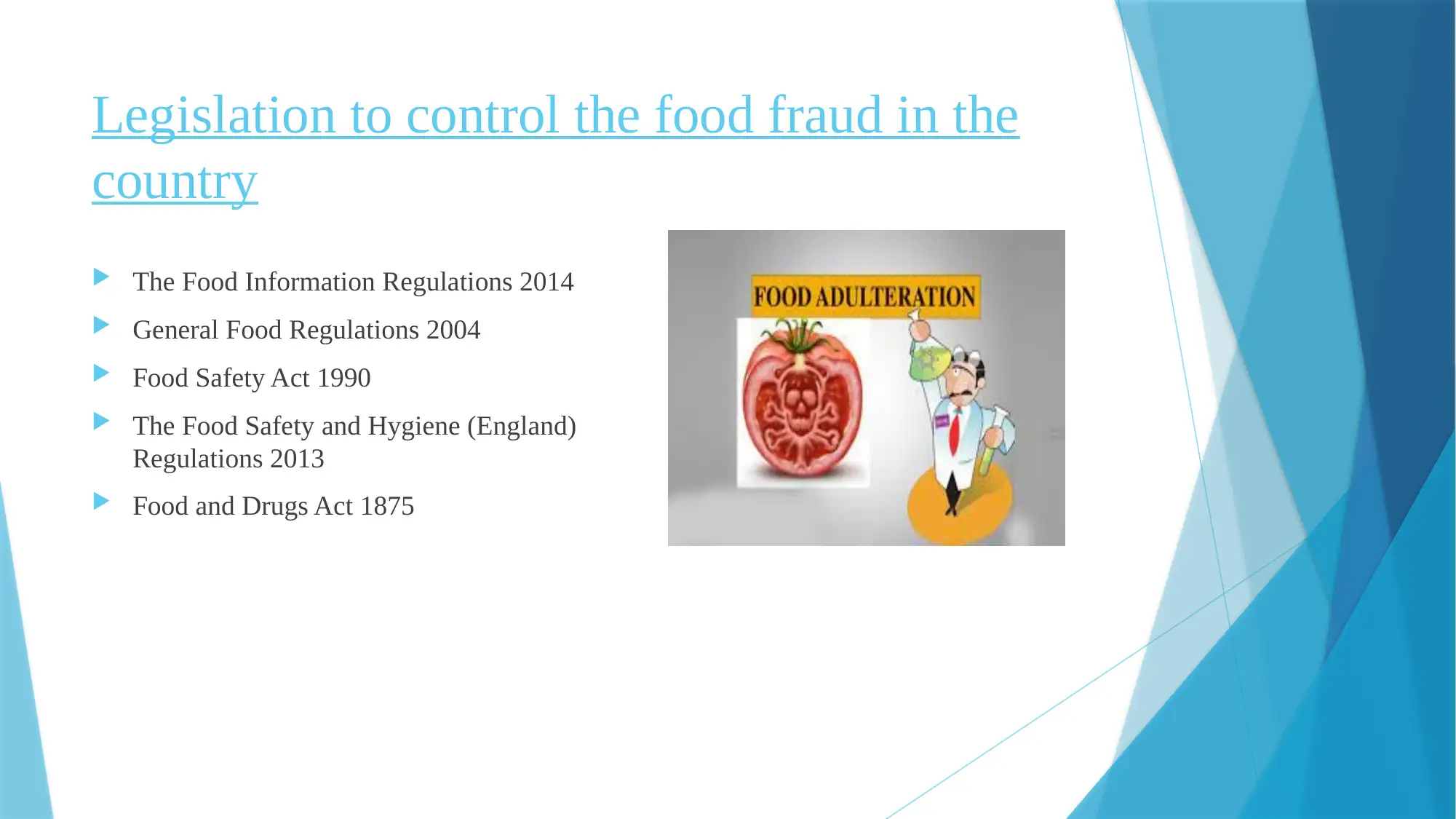
Legislation to control the food fraud in the
country
The Food Information Regulations 2014
General Food Regulations 2004
Food Safety Act 1990
The Food Safety and Hygiene (England)
Regulations 2013
Food and Drugs Act 1875
country
The Food Information Regulations 2014
General Food Regulations 2004
Food Safety Act 1990
The Food Safety and Hygiene (England)
Regulations 2013
Food and Drugs Act 1875
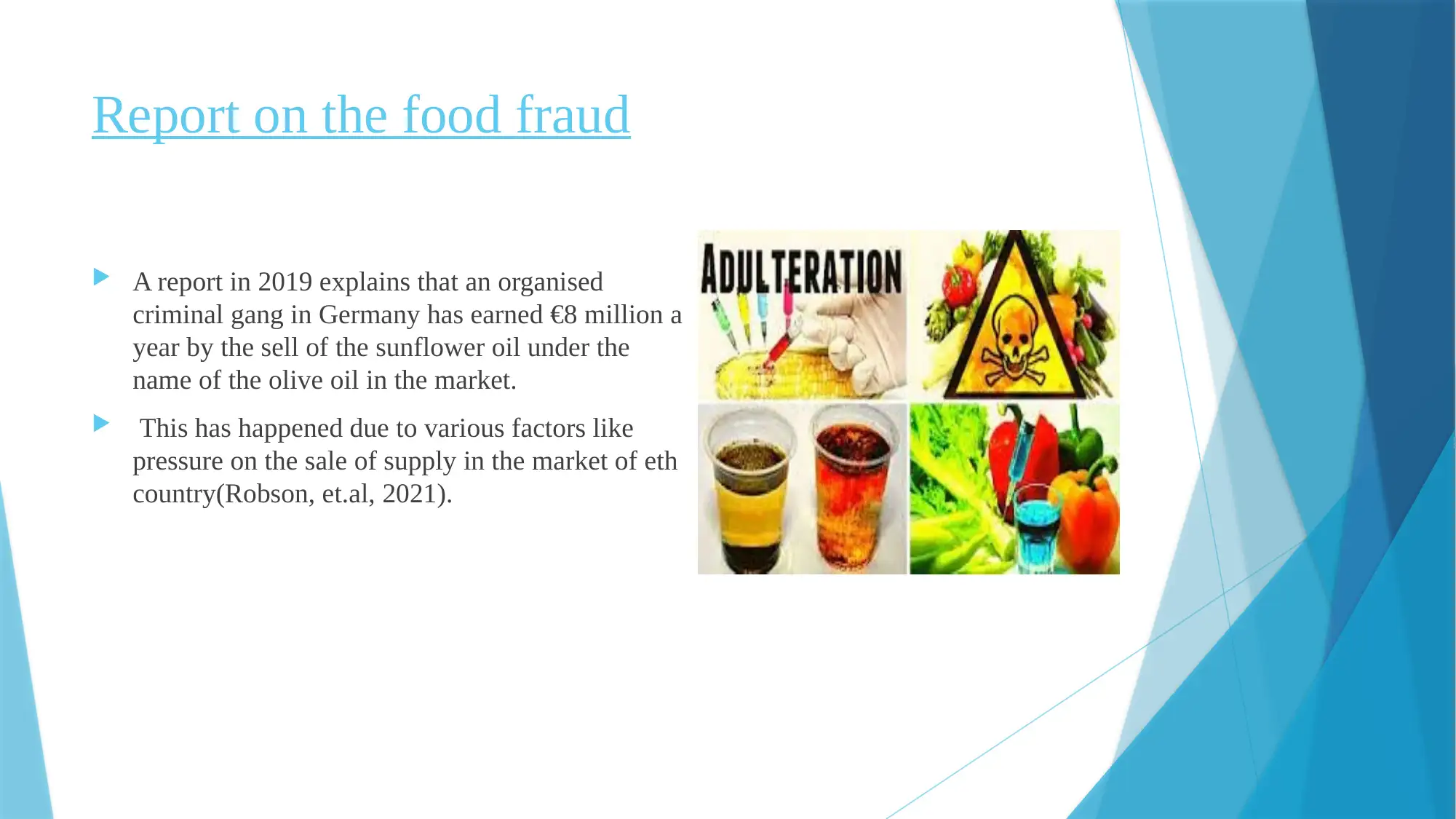
Report on the food fraud
A report in 2019 explains that an organised
criminal gang in Germany has earned €8 million a
year by the sell of the sunflower oil under the
name of the olive oil in the market.
This has happened due to various factors like
pressure on the sale of supply in the market of eth
country(Robson, et.al, 2021).
A report in 2019 explains that an organised
criminal gang in Germany has earned €8 million a
year by the sell of the sunflower oil under the
name of the olive oil in the market.
This has happened due to various factors like
pressure on the sale of supply in the market of eth
country(Robson, et.al, 2021).
Paraphrase This Document
Need a fresh take? Get an instant paraphrase of this document with our AI Paraphraser
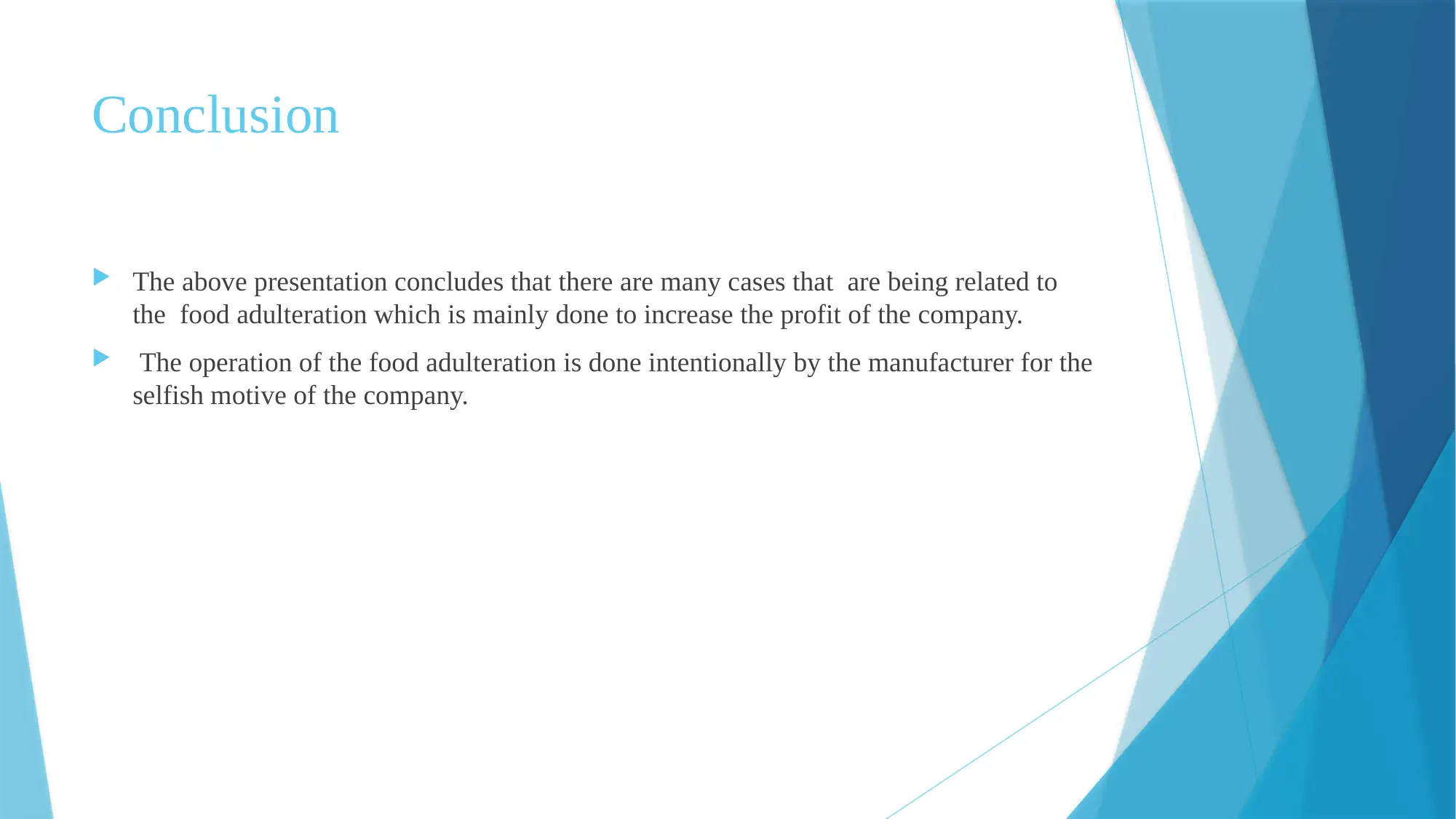
Conclusion
The above presentation concludes that there are many cases that are being related to
the food adulteration which is mainly done to increase the profit of the company.
The operation of the food adulteration is done intentionally by the manufacturer for the
selfish motive of the company.
The above presentation concludes that there are many cases that are being related to
the food adulteration which is mainly done to increase the profit of the company.
The operation of the food adulteration is done intentionally by the manufacturer for the
selfish motive of the company.
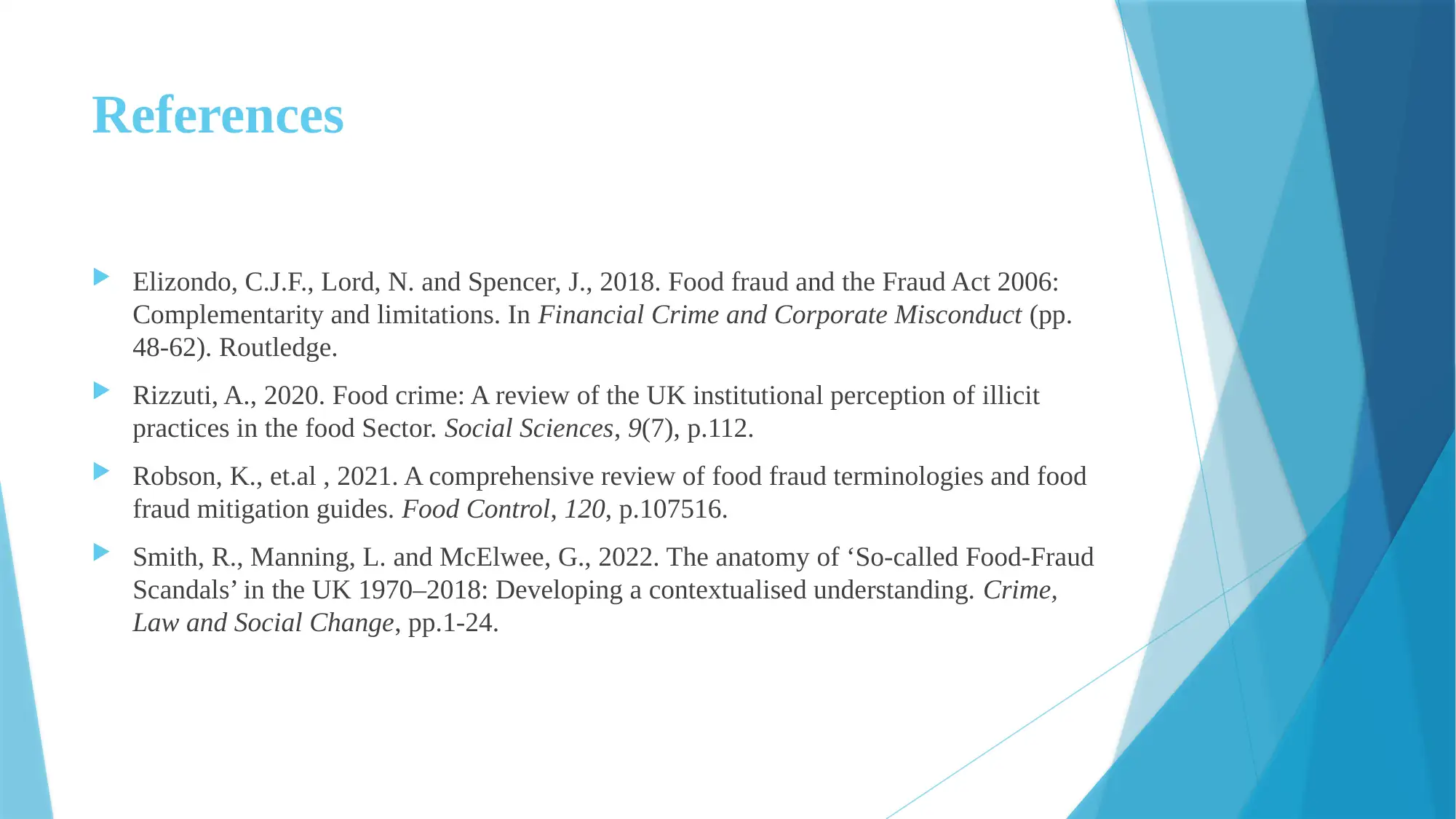
References
Elizondo, C.J.F., Lord, N. and Spencer, J., 2018. Food fraud and the Fraud Act 2006:
Complementarity and limitations. In Financial Crime and Corporate Misconduct (pp.
48-62). Routledge.
Rizzuti, A., 2020. Food crime: A review of the UK institutional perception of illicit
practices in the food Sector. Social Sciences, 9(7), p.112.
Robson, K., et.al , 2021. A comprehensive review of food fraud terminologies and food
fraud mitigation guides. Food Control, 120, p.107516.
Smith, R., Manning, L. and McElwee, G., 2022. The anatomy of ‘So-called Food-Fraud
Scandals’ in the UK 1970–2018: Developing a contextualised understanding. Crime,
Law and Social Change, pp.1-24.
Elizondo, C.J.F., Lord, N. and Spencer, J., 2018. Food fraud and the Fraud Act 2006:
Complementarity and limitations. In Financial Crime and Corporate Misconduct (pp.
48-62). Routledge.
Rizzuti, A., 2020. Food crime: A review of the UK institutional perception of illicit
practices in the food Sector. Social Sciences, 9(7), p.112.
Robson, K., et.al , 2021. A comprehensive review of food fraud terminologies and food
fraud mitigation guides. Food Control, 120, p.107516.
Smith, R., Manning, L. and McElwee, G., 2022. The anatomy of ‘So-called Food-Fraud
Scandals’ in the UK 1970–2018: Developing a contextualised understanding. Crime,
Law and Social Change, pp.1-24.

Thank you
1 out of 10
Your All-in-One AI-Powered Toolkit for Academic Success.
+13062052269
info@desklib.com
Available 24*7 on WhatsApp / Email
![[object Object]](/_next/static/media/star-bottom.7253800d.svg)
Unlock your academic potential
© 2024 | Zucol Services PVT LTD | All rights reserved.